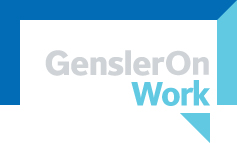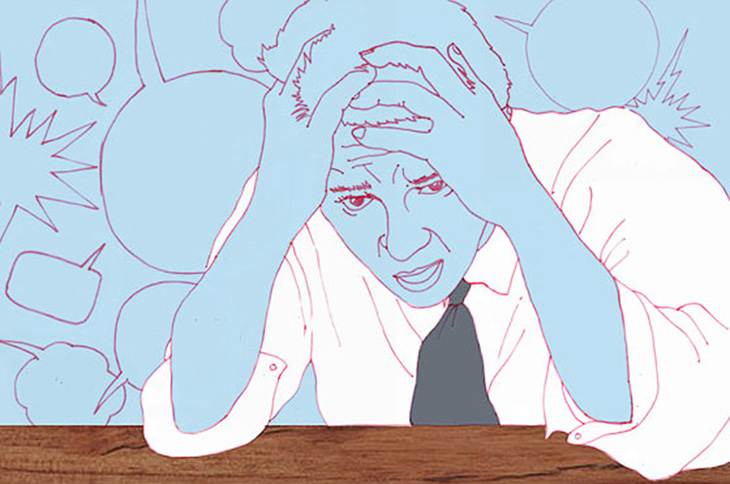Distractions, distractions, distractions
 Lisa Bottom
Lisa Bottom “How on earth can I get my job done when I’m at the office? Someone is always interrupting me!”
“I’d get more done if I called in sick and worked from home!”
“This drives me crazy—I can never find my team. Where are they all? Did X go home???”
If these statements sound like the soundtrack inside your head, you’re not alone. We are working in a business culture increasingly focused on the team. Work environments are being designed to encourage interaction and support teamwork, but we’re all still expected to get our individual work done. We need to be in the office so we’re available to the team, but we then face constant interruption from other team members.
Have you ever felt completely frustrated by the number of interruptions you have when you’re at work? I know I have. I often find that I simply cannot get all the “heads down” time I need at my desk, and I know I’m not alone.
In a series of blog posts, I will be exploring the issues surrounding distraction in the workplace, how to find the sweet spot of balancing the needs of the individual with the needs of the team, and exploring what constitutes a boundary. My goal? To figure out ways that we can make the office a better place to work, both for us (okay, for myself!), and for our clients.
So, if this subject intrigues you, here is Question Number One: What are that top 3 distractions that keep you from getting work done at the office?
I will be sharing your responses and some thoughts in my next blog post.
 |
Lisa Bottom is a Principal in Gensler’s San Francisco office focused on work with law firms and professional practice organizations, as well as participation in the Product Design practice. Her passion is developing a culture of excellence in client service. Contact her at lisa_bottom@gensler.com. |



Reader Comments (18)
2. Cold and flu season and the litany of coughs, sniffles, sneezes, etc. that come with it.
3. Phone calls. Constant phone calls.
Oh, how could I forget all those "emergencies". Its funny how much needs to happen ASAP!
2. When the GM or the Head of the department moves around, especially when they are showing the office to a new/big client.
I don't bother about loud voices around me, cz when I concentrate on something I usually don't notice anything around me, and sometimes a headphones with some music helps!
2. IM - people who interrupt despite a status of "busy"
3. Having to gather my things and carry them around the office to a conference room for a meeting
4. Other people's conversations right next to my cube
5. Not being able to find someone on my team to answer a question
In an open office, people's lack of awareness of the volume/proximity of their conversations, whether phone or in-person, creates distractions...as does incessant paging on the intercom (I've had someone on the other end of the line ask me if I am out shopping at a discount store).
How does design facilitate openness and access while also providing a needed "shield" from distraction? How can you design to help people become more aware of their behavior?
- Blackberry
- not being able to break a 100 on the golf course :)
@overworked_pup
1) "emergency" email barrages: I used to be constantly interrupted by the incessant emails arriving with a "bing" and a red light on my desktop, and for the longest time I felt compelled to answer everything on the spot. Then I had a time where I didn't get to my emails at all until after lunch, and I realized that by then, a good portion of the "emergency" emails of the morning had resolved themselves or narrowed the initially frenzied and erratic conversation down to a point where
a) the questions were more focused,
b) relevant information had been provided from the various people cc'd, and hence
c) it took me only a fraction of the time to make informed decisions and resolve the matter
Since then, I have turned my automatic email retrieval off and check (and reply) to emails only outside of the time blocks I reserve for focused work.
2) coworker conversations in open office space: contrary to Lester's post I don't think it is unprofessional to wear headphones or even earplugs for periods of time. If you work in an open office this is the only way to "shut the door", and I think it is very professional to claim focused work time for oneself. I simply announce to my coworkers that I am going to be "deaf" for a little while and it has worked really well that way.
3) My biggest interruptor: my own obsessively multitasking mind. Too often I am working on something, and then another project crosses my mind, so I make a note of that, that leads me to wondering about a certain product or missing piece of information, so i jump on the web to research, then I realize i was actually not working on this, so I go back to the first project....
For this I have only found two remedies, which I still don't use often enough: Unplugging and taking breaks.
By unplugging I mean using VERY SIMPLE, TACTILE, NON-DIGITAL TOOLS to organize, design, and take notes.
I have a pad of old printer paper that I spiral bind and write on the back of. On the cover it says: "Corinna's mind maps". When stuff threatens to make my head explode, I draw a picture of how all the different pieces are connected (or not) - basically a bubble diagram/flow chart of my brain.
Note that I do NOT use a computer program like Mindjet for this, because I have found that mind-mapping is a fundamentally right-brain activity, while entering data into a computer, no matter how graphic it might try to be, is a left-brain activity.
On a larger scale we have a wall in our office that is a living mind map of our office's current areas of focus. It is plastered with little cards containing everything from design criteria to potential collaborator's names, which get regrouped constantly.
Taking breaks might sound counterintuitive when we are talking about avoiding interruptions, but I have found that sometimes it is necessary to just walk away from the chatter (be it in the office or in your own head), look at something far away (ideally outside) and reset. While I stare at that distant tree or the clouds, I say to myself: "Alright, Corinna, you have one hour. What did you want to get done? Ok, go!" When I then return to my desk I usually find it very easy to stay focused and complete the task, and most of the times an hour is - unbelievably - enough to get it done. And if not - well, you can always take another break... : )
1. Inconsiderate loud coworkers
2. Meetings held in the circulation area (adjacent to my station)
3. Uninvited guests chatting me up in my station, even when I'm wearing earplugs. The environment can be very distracting & I do need to focus.
If I were to find the top 3 interruptions/distractions for me, it would be:
1) Decision-makers not giving me a direct or clear path to follow when I need to prioritize my schedule.
2) Lack of information/time to complete multiple tasks (aka fire drills)
3) Equipment failure or lack of organized production space during deadline days (costly time stealers)